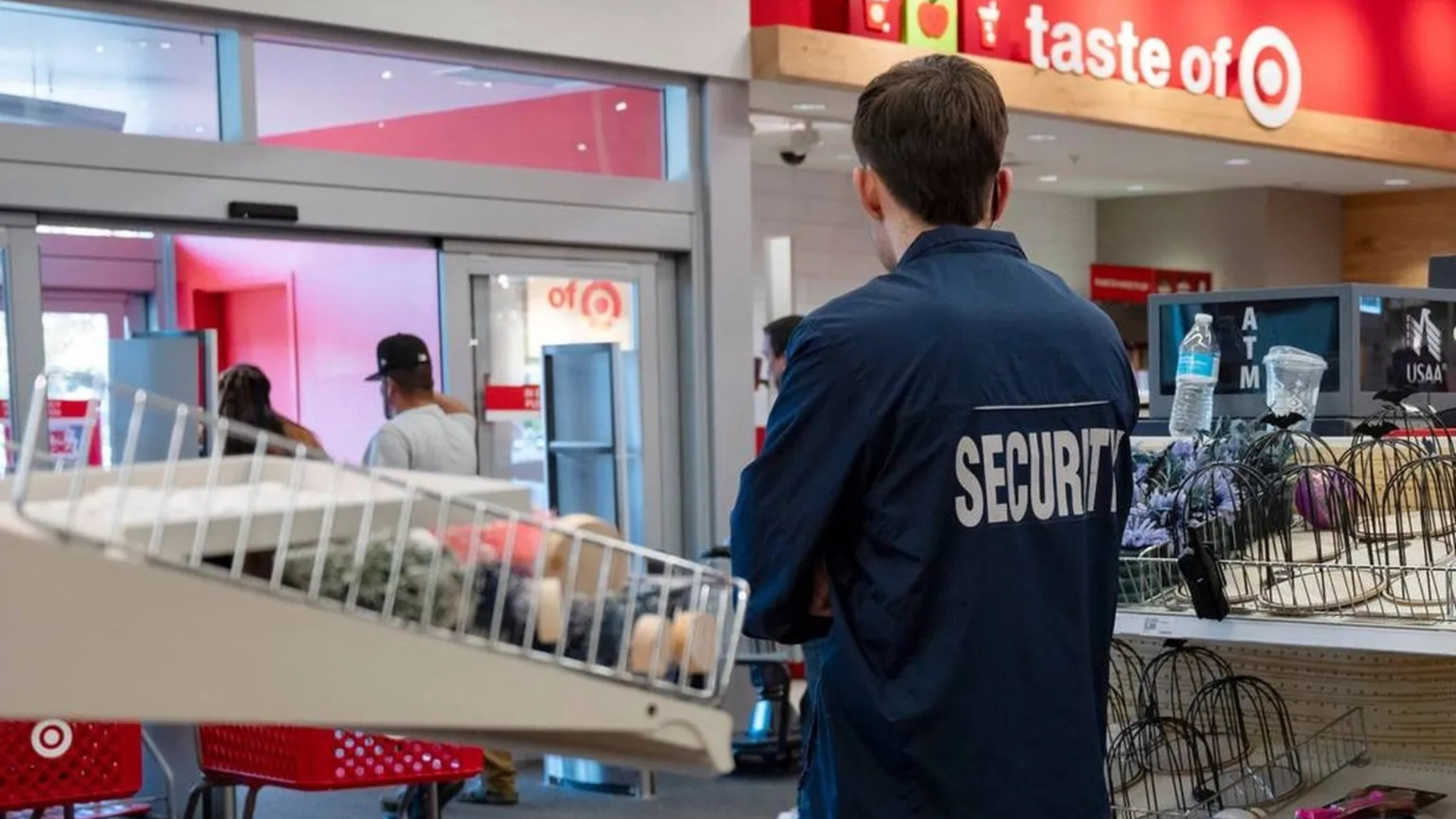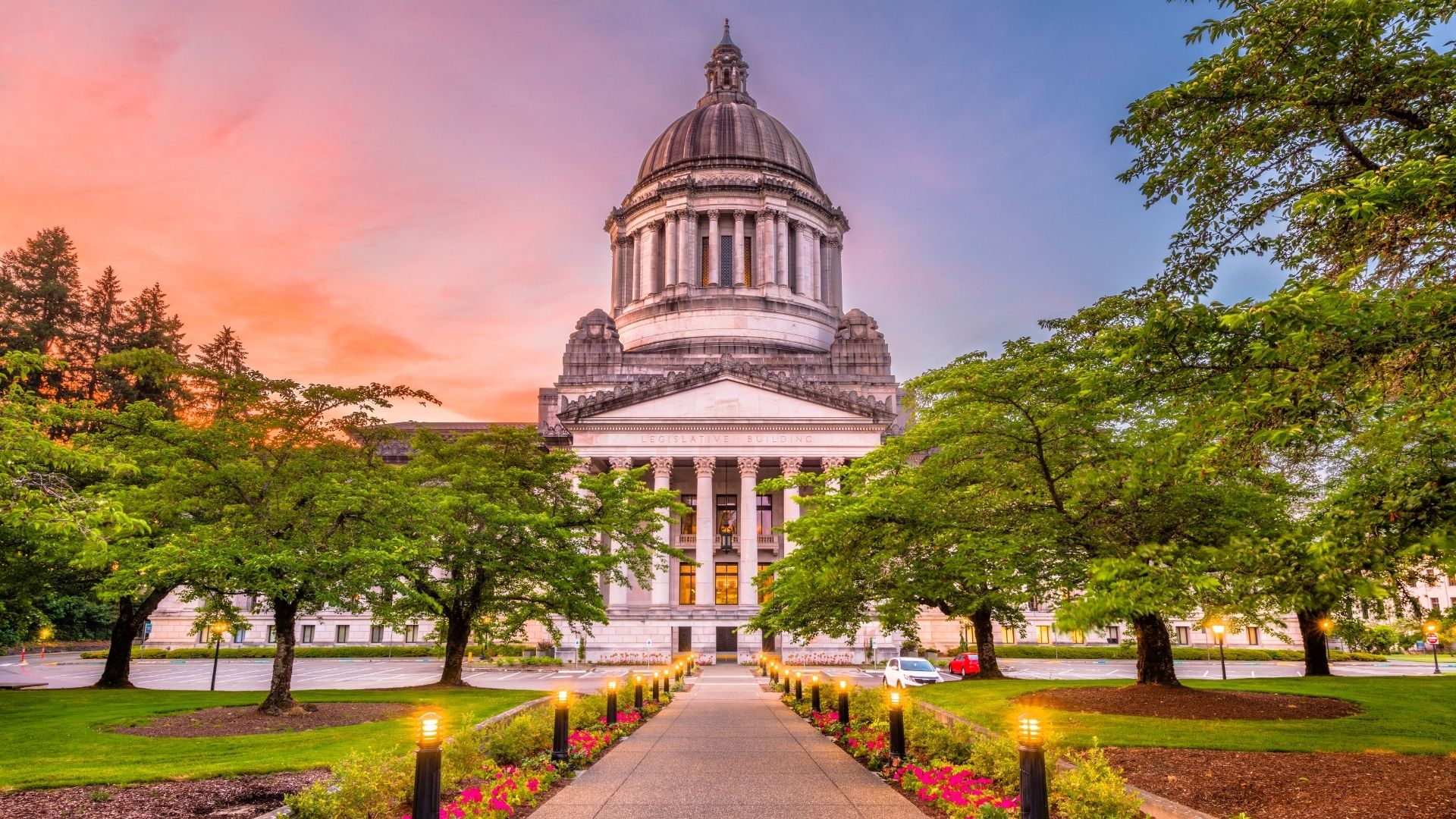Retail crime is not simply a financial loss for retailers — it is a public safety issue for employees, customers and our community at large, write the authors. Pictured is a security guard watching customers inside a Target store in Sacramento, Calif. (Sara Nevis/Sacramento Bee file / TNS, 2023)
Nov. 29, 2024 at 6:00 am Updated Nov. 29, 2024 at 6:00 am
By Jesse Anderson, Leesa Manion and Erik Nordstrom
Special to The Seattle Times
On a Friday afternoon, shots rang out outside the Nordstrom at Southcenter Mall in Tukwila. While no one was injured, shoppers were rattled. As one customer said: “It’s a public spot where families and everyone comes out, so I don’t know why they would risk anyone’s life.” The investigation has revealed that it involved a gang-affiliated group stealing merchandise inside the store before the altercation.
Organized retail crime like this is a growing challenge that demands urgent action. By many measures, Washington has the unfortunate distinction of being the state most impacted by organized retail crime. Washington state experienced over $2.7 billion in retail theft in 2021, which means major losses for our businesses large and small, hundreds of millions in lost taxes for governments and an impact on consumers. The risk and threat of violence also means that local stores are less welcoming to customers and less safe for employees.
We see it in downtown Seattle and in every other community along the Interstate 5 corridor and beyond. It strikes small neighborhood shops as well as big box retailers and department stores. Many of the retail crimes known to law enforcement and retailers are tied to other public safety issues we face in King County: gun violence, robberies, assaults, human trafficking, the fentanyl crisis, identity theft and auto theft. While the assessable impact is already high, it is also likely an undercount.
Despite law enforcement’s efforts, the perpetrators are often prolific, mobile and organized — whether it’s individuals stealing and reselling, informal groups doing the same or highly sophisticated, transnational criminal enterprises. We must stop viewing this as a private-sector problem. Retail crime is not simply a financial loss for retailers — it is a public safety issue for employees, customers and our community at large and requires an unprecedented public-private partnership to fight it.
As the retailers who witness it, and prosecutors and investigators responsible for building these cases, we know the evidence proves that basic needs are not the motivation. Take a few recent cases: A makeshift storefront in Burien contained 74,000 items of stolen merchandise valued at $2.4 million. The individuals would turn around and sell the merchandise online, completing 150,000 transactions worth $4.5 million. One woman was found to have stolen $527,000 worth of athletic wear from stores up and down the I-5 corridor.
An ongoing pilot between the King County Prosecuting Attorney’s Office, the Seattle City Attorney’s Office, a dozen police departments in King County and the Retail Industry Leaders Association is focusing on better coordination. Pilot members meet weekly to discuss high-impact offenders and share information with law enforcement and prosecutors on ongoing investigations and trends. In the first months of the pilot, the results were striking: The Top 10% of offenders were causing 89% of losses, adding up to millions of dollars for just a handful of retailers. The ongoing collaboration and recent prosecutions are promising — demonstrating that we can solve these crimes by working together.
Given all this information, we must act now to create a lasting regionwide public-private partnership to combat this public safety challenge. Retailers should report all incidents and share their information with other retailers. Local law enforcement departments can streamline online reporting and dedicate personnel to partner with retailers. Local governments and the Legislature should prioritize organized retail theft, fund successful pilot programs to scale statewide and adequately fund law enforcement and prosecutors.
And yes, the public has a key role, too, to ensure they are not purchasing these stolen goods. If the price looks too good to be true, it probably is. All of us need to be part of this public-private partnership to stop organized retail crime. Learn more: orcresourcehub.org.
Shoppers shouldn’t face empty shelves or fear for their own safety. Retail stores will not survive if customers don’t feel safe shopping, employees don’t feel safe working and stores don’t feel safe enough to renew their lease.
By embracing — and funding — public-private collaboration, we can tackle organized retail crime and strengthen public safety. Cooperation from all of us is crucial for a safer region.
Jesse Anderson: is the undersheriff in the King County Sheriff’s Office.
Leesa Manion: is the King County Prosecuting Attorney.
Erik Nordstrom: is the CEO of Nordstrom.


